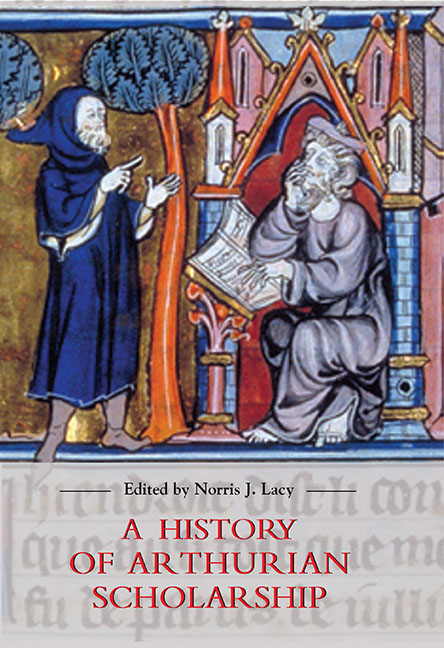The Search for Sources: The Case of the Grail
Published online by Cambridge University Press: 18 March 2023
Summary
The search for sources has always been, and continues to be, a major aspect of Arthurian scholarship, whether for the historical sources for Arthur himself or for the widely varying literary elements incorporated into the romances. In this chapter, I shall take the Grail as an example of how Arthurian scholars have dealt with the problems of sources; it is probably the most vexed and controversial topic in this field, and covers a wide variety of approaches.
While discussions of literary texts were focused on the text itself, like the medieval commentaries on Dante's Divine Comedy, the pursuit of sources was of minor interest. It is only with the emergence of literary history that the problem of origins, and of which author first conceived a particular idea, becomes a crucial question. This is exactly what happens when literature is drawn into the arena of national history. French writers from the Romantic period onwards championed regional cultures as formative influences on the literature of their country; and it was in this context that the question of sources was first raised, when Claude Fauriel, the first professor of foreign literature to be appointed in France (in 1830) suggested that the Arthurian tales had their origins in Provence, since only a highly developed literary culture such as that of the troubadours could have given rise to sophisticated works of this kind. This generalised approach was quickly superseded by the exploration of the Celtic parallels for the French romances.
Too little attention is paid to the historical, political and even cultural context of scholarship. On the one hand, we need more books such as Eric Stanley's magisterial Imagining the Anglo-Saxon Past, which shows how a political agenda shaped an image of a struggle that never existed, of pagan bard versus Christian monk, for such agendas underlie interest in medieval texts from the beginning of the renewal of interest in such works in the early eighteenth century. Behind the enthusiasm of J.J. Bodmer, professor of Helvetic history at Zurich, for Parzival in the mid-eighteenth century, Fauriel's championing of Provence and Gautier's dismissal of the romances, lies a common enthusiasm for the promo tion of national literature, whether French or German.
- Type
- Chapter
- Information
- A History of Arthurian Scholarship , pp. 19 - 36Publisher: Boydell & BrewerPrint publication year: 2006



